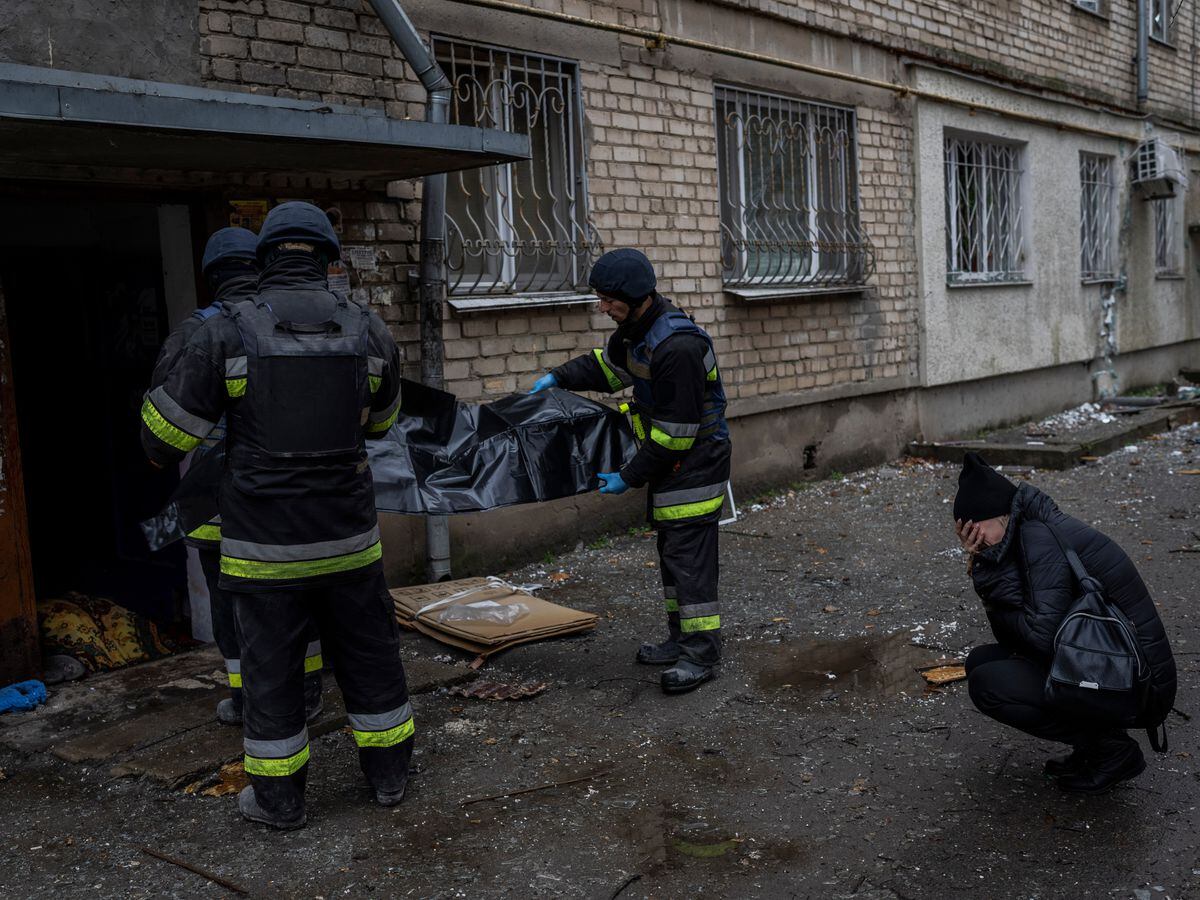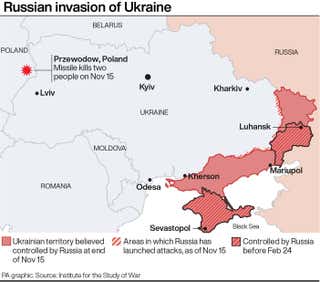[ad_1]

Ukrainian authorities are working to restore power and water services after the latest Russian military strike severely damaged infrastructure.
President Zelensky said power had been restored to millions of people since blackouts swept the war-torn country days ago.
Skirmishes continued in the east, with residents of the southern city of Kherson fleeing north and west after being punished by deadly bombing by Russian forces in recent days.

The strikes were seen as Russian retaliation against the besieged but defiant Ukrainian people after Ukrainian forces liberated the city that had been in Russian hands for months.
“The key priority today and the rest of the week is energy,” Mr Zelensky said in an evening televised address late Friday.
“We’ve managed to halve the number of people without power between Wednesday and today to stabilize the system.”
However, power outages continued across much of the region, including the capital Kyiv, he said.
“In total, more than 6 million users were affected. On Wednesday night, nearly 12 million users were cut off,” Mr Zelensky added.
In a rare display of outrage at the Kyiv authorities’ performance, he alluded to “many complaints” about the rollout of “Invulnerability Points” — public centers where residents can stock up on food, water, batteries and other essentials — in the capital.
“Beware: Kyiv residents need more protection,” he said.
“As of tonight, 600,000 users in the city have been disconnected from the Internet. Many Kyiv residents have been without power for more than 20 or even 30 hours.”
“I look forward to high-quality work from the mayor’s office,” he said, alluding to Mayor Vitali Klitschko’s administration.
Earlier on Saturday, the Kyiv city government said water supplies had been restored across the city, but about 130,000 residents were still without power.
All electricity, water, heating and communications services will be restored within 24 hours, the city government said Saturday morning.
Meanwhile, Ukrainians are marking the 90th anniversary of the start of the “Great Famine,” which killed more than three million people in two years, as the Soviet government under Joseph Stalin confiscated food and food supplies and sent many Ukrainians were deported.
German Chancellor Olaf Scholz compared the commemoration to the impact on world markets of the war in Ukraine – a major supplier of wheat, barley, sunflower oil and other food products.
Ukrainian exports have resumed under a UN-brokered agreement, but remain well below pre-war levels, pushing up global prices.
“Today we stand united in stating that hunger must never again be used as a weapon,” Mr Schultz said in a video message.
“That’s why we cannot tolerate what we are witnessing: the worst global food crisis in years, with abhorrent consequences for millions – from Afghanistan to Madagascar, from the Sahel to the Horn of Africa. “
A World Food Program ship was delivering Ukrainian grain to Ethiopia, and Germany would provide an additional 10 million euros to help expedite food deliveries from Ukraine, he said.
[ad_2]
Source link